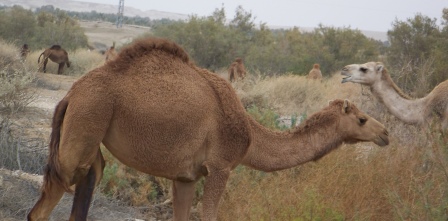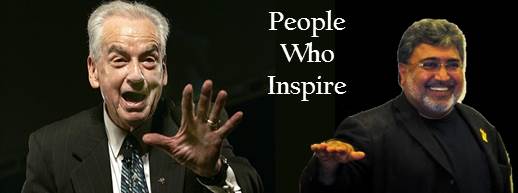Story Of The 17 Camels
In an Arabian tribal village, an old man died and left behind 17 camels for his three sons. Shortly after the official mourning period was over, the sons opened his last will.
The will was a rather strange one. It stated that the eldest son, being the first-born and the old man’s favourite, should get half of 17 camels while the middle son should be given one-third, and the youngest of the three would get one-ninth of the 17 camels.
Now here was a real problem that the three brothers did not know how to solve. 17 is not a number that could be divided into a precise half, nor could it be divided by 3 or by 9. Each of the sons wanted this interpreted their own way – naturally to each one’s own advantage. Angry and heated exchanges between the three of them continued for several days, without any solution in sight. So tense was the situation that the tribe’s elders intervened and suggested to them that they should visit the oldest and wisest member of the tribe, who would surely be able to come up with a solution for their peculiar problem.
And so, off they went to see this wise elder. The wise man listened to them patiently about their father’s legacy of 17 camels, and appeared to be lost in thought for a while afterwards. Shortly thereafter, as if having reached a conclusion in his own mind, the old man got up and went to the his own cattle yard, and returned after a few minutes, leading one of his own camels, which he added to the 17 camels of the three brothers. So now there were 18 camels in all – an even number.
He then picked up the dead man’s will and read it out again.
Half of 18 being 9, he gave the eldest son 9 camels. The middle son was to get one-third, and one-third of 18 being 6, the middle son was allowed to take 6 camels. Then came the turn of the youngest son, who was to get one-ninth of 18, which works out to 2, so the old man gave him two camels.
Now figure this out: 9+6+2 = 17, which was the number that the three brothers had been quibbling about initially, before the wise man added the 18th camel, and even after having divided the camels, there was still one camel left – the 18th one, which the wise old man claimed for himself.
Each of the brothers left happy with the brilliant solution offered by the wise man – a solution that neither one of them had been able to come up with. Between the three of them, they left with the same total number of camels that they had come with, and yet, they left happy with the outcome, with no ill-will, with each one of them feeling that it had been a fair solution to the problem.
So what changed ? In real terms, perhaps nothing. But yet, a peaceful solution had been arrived at. A solution that was acceptable to each one of them. Because when they came, it was with the belief that a commonly acceptable solution to be found by consulting the wise old man. Believing in the possibility of an amicable solution is the first step for any negotiation to be successful, and the 18th camel became the common factor that neutralized the problem.
As is the case with many negotiations, believing that a common ground for a win-win situation can be found is critically important to finding amicable solutions. This helps to shape our attitude, and as is the case with anything else in life, a positive attitude can help to solve any kind of problem. However, a negative frame of mind distorts our vision and we are unable to see the possibility of a solution, which is most often the reason why negotiations break down. So next time we are stuck with any tricky negotiation, we first need to find that 18th camel.
I do not take any credit whatsoever for this short story with a wonderful life-lesson. This is not my original work and neither am I aware of the identity of the original author. Before posting this on my blog, I searched online to try and identify the source of this wonderful tale, but with no luck, as several blogs and websites have shared the same story. I just happened to get this story as a forwarded email in my mail box, and all I did was to put this into my own words, and I am grateful to whoever may have written the original. The lesson is a valuable one indeed.




A wonderful story which is really inspiring.Thanks for posting such shining jewels.
Thank you, Pradeep ji, for your kind words. However, it is nothing compared to the real gems that you share on your blog, which are much more inspiring, considering the fact that you share actual success stories of real people. Please keep up the good work, and I eagerly look forward to the sequel to your book. Regards.
The first objection to the will should have been that 1/2 + 1/3 + 1/9 only adds up to 17/18. Anyway, math shouldn’t ruin a good story.
@Khouri Giordano – Yes, a very valid objection, but then, as you rightly said, math shouldn’t ruin a good story.
And anyway, I always flunked math so I wouldn’t even begin to attempt figuring it out ! 😀
nice to know it. i enjoyed it sir.
Thank you 🙂
Thanks sir, for posting this type of inspirational story’s and a big salute to your blog which motivate me. thank you sir .
Thank you so much for your kind words, Rajeev 🙂